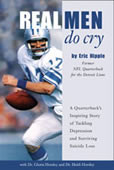

SUICIDE PREVENTION AND DESTRUCTIVE BEHAVIOR
There are those who display the classic symptoms suicide behavior, who builds up to their act over time or who choose methods that require careful planning. And then there are those whose act appears born of an immediate crisis, with little or no forethought involved. In both cases the decision to die is predicated on thoughts that joy of life no longer outweighs the unknown that is found in death. Feelings of worthlessness and the inability to connect with a sense of well-being can be influenced by stress, trauma, brain illness, and injury. Brain illnesses such as depression and PTS can influence one's perception and lead to a pattern of negative thoughts and destructive behavior. An understanding of brain illness symptoms, suicide ideation and the use of QPR can be used for intervention. Discussion of Mental Fitness (choices, self-esteem, values, communication and healthy boundaries) is paramount for prevention. The more mentally healthy one is, the better the outcomes to negative influencing factors.
Eric Hipple begins this program with his NFL story, followed by the stress and depression involved with losing his son to suicide. He transitions into Mental Fitness with the focus on preventative steps.
*Information presented has been obtained via The University of Michigan studies and training in QPR and ASIST.


